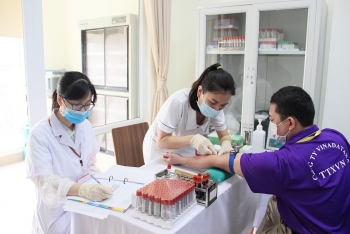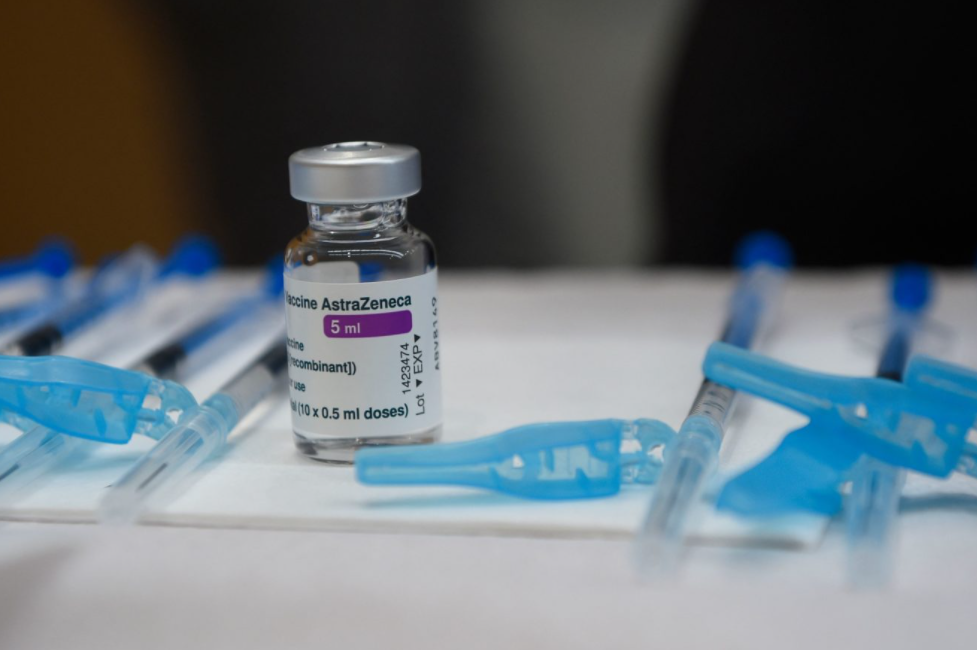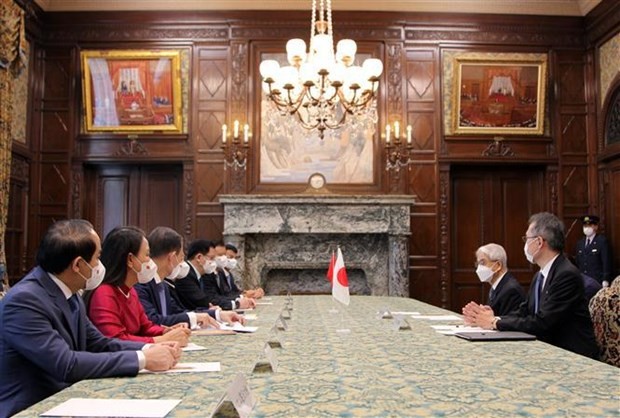WHO confirms "no evidence of casuality caused by the vaccine" after examining AstraZeneca
| Vietnam will take initiative in COVID-19 vaccine availability | |
| In Pictures: Made-in-Vietnam Covivac vaccine's human trial procedures | |
| AstraZeneca vaccine halted in Ireland over blood clot concerns |
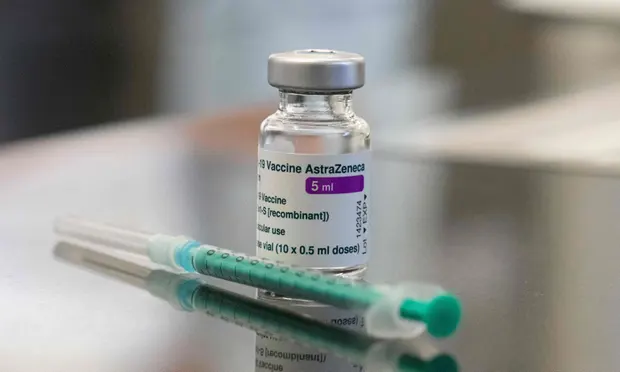 |
| Europe’s medicines regulator has said the AstraZeneca vaccine is safe. Photograph: Thomas Kienzle/AFP/Getty Images |
In a reply to Reuters, WHO spokesman Christian Lindmeier said: “As soon as WHO has gained a full understanding of these events, the findings and any unlikely changes to current recommendations will be immediately communicated to the public, according to Reuters.
“As of today, there is no evidence that the incidents are caused by the vaccine and it is important that vaccination campaigns continue so that we can save lives and stem severe disease from the virus,” he added.
“A vaccine is designed to prevent a certain kind of thing — prevent an infection or prevent disease,” said Susan Ellenberg, a professor of biostatistics, medical ethics and health policy at the University of Pennsylvania’s Perelman School of Medicine. “It’s not going to prevent every bad thing that could possibly happen to anybody, so when a vaccine is widely used, all the other kinds of bad things that could happen to people are still going to happen.
“And when they happen in close proximity to getting a vaccine, one can understand why people think, ‘Oh, that must have been caused by the vaccine’ or at least be suspicious that it might have been caused by the vaccine,” Ellenberg continued.
Ellenberg and other experts emphasized that health conditions arising after a new vaccine or drug is distributed to the general population are often coincidental, Washington Post reported.
“When you’ve got millions and millions of people receiving the vaccine, coincidences happen.”
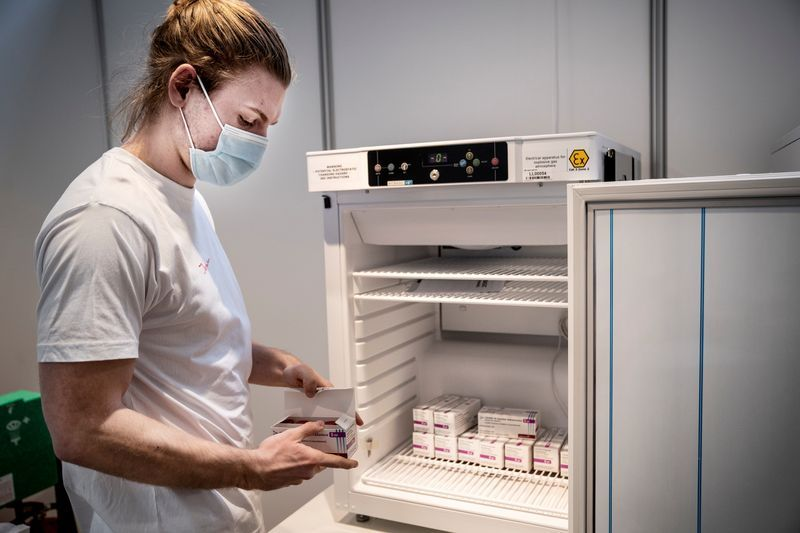 |
| Staff member handles AstraZeneca COVID-19 vaccines in storage at Region Hovedstaden's Vaccine Center, Copenhagen, Denmark February 11, 2021. Ritzau Scanpix/Liselotte Sabroe via REUTERS THIS IMAGE HAS BEEN SUPPLIED BY A THIRD PARTY./File Photo |
There are two main ways researchers determine whether an adverse effect is related to a vaccine, Ellenberg said. “One is understanding the biology and how the vaccine might potentially cause this, and the other is understanding whether this is happening more frequently than might be expected in the general population.”
Though the “temporal association is just too much for some people to ignore,” Ellenberg said it’s important to remember that there are a number of reasons people may develop adverse health conditions post-vaccination, particularly those as common as blood clots, according to Washington Post.
“It seems like an incredible coincidence,” she said. “But when you’ve got millions and millions of people receiving the vaccine, you know, coincidences happen.”
In general, older people may have a greater chance of being at risk of developing blood clots, as well as those who are taking certain medications, such as oral contraceptives. To determine a causal link between the AstraZeneca vaccine and blood clots, experts said, an epidemiological study would be needed.
“Things that just happen by coincidence will, because it’s health-related, be assumed to be caused by the vaccine, but that is, in most instances, not the case,” said Stephen Evans, a professor of pharmacoepidemiology at the London School of Hygiene and Tropical Medicine.
On Monday, the European Medicines Agency released a statement saying that while it is still investigating, “many thousands of people develop blood clots annually in the EU for different reasons. The number of thromboembolic events overall in vaccinated people seems not to be higher than that seen in the general population.”
Meanwhile, the WHO said its advisory panel is also looking into the reports but noted that “there is no evidence that the incidents are caused by the vaccine,” according to Reuters.
Evans, who has reviewed AstraZeneca’s data, added that the shots do not appear to have a “notably higher rate for any of the coagulation disorders” compared with the Pfizer-BioNTech coronavirus vaccine, which has also been authorized for use in the European Union.
“That to me says that it almost undoubtedly isn’t the vaccine,” he said. “I can’t be sure and I’m ready to change my mind on new data, but all the data I’ve seen says this isn’t a real problem.”
The challenge for scientists is trying to figure out “whether it’s a real signal or whether it’s just noise,” said Andrew Stolbach, an associate professor of emergency medicine at Johns Hopkins University and an expert on drug reactions.
“The public should be reassured that there are people that follow all these events that are checking to see if they’re related,” Stolbach said. “If you’re in the public, you should remember that things that make the news are always going to be the worst things and the most shocking things and the most scary things and the most exciting things, but that doesn’t mean there’s a relationship.”
Several EU countries suspend AstraZeneca vaccine to investigate blood clot cases
Several European countries have either suspended inoculations with the AstraZeneca vaccine as a precautionary measure or banned the use of a specific batch after blood clots formed in some people who had received the jab, according to The Guardian.
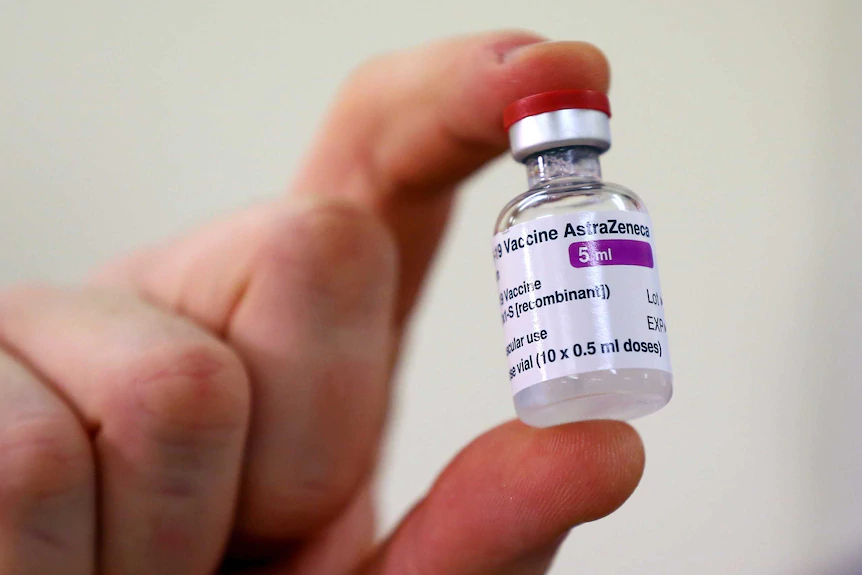 |
| Illustrative photo |
Denmark, Norway and Iceland announced they were temporarily halting all AstraZeneca vaccinations to investigate the cases. Italy followed Austria, Estonia, Latvia, Luxembourg and Lithuania in banning inoculations with one particular batch of 1m doses that was sent to 17 countries.
AstraZeneca, which developed the vaccine with the University of Oxford, said the safety of its shot had been extensively studied in human trials and that peer-reviewed data had confirmed the vaccine was generally well tolerated.
Its vaccines were subject to strict and rigorous quality controls and there had been “no confirmed serious adverse events associated with the vaccine”, it said.
The British government defended the vaccine and said it would continue its rollout. “We’ve been clear that it’s both safe and effective … and when people are asked to come forward and take it, they should do so in confidence,” Boris Johnson’s official spokesperson told reporters.
Denmark’s national health agency said it was suspending AstraZeneca vaccinations for two weeks because a 60-year-old woman who was given a shot from the same batch as used in Austria had formed a blood clot and subsequently died.
The agency said it had not established a link between the clots and the vaccine but it had asked regional authorities in charge of the vaccination programme to stop using the AstraZeneca shot pending consultations with the national medicines regulator.
Søren Brostrøm, the agency’s director, said it needed “to respond promptly and carefully when we have knowledge of possible serious side-effects. We need to clarify this before we can continue using the AstraZeneca vaccine.”
Brostrøm said there was “broad documentation proving that the vaccine is both safe and effective”, stressing: “We have not terminated the use of the AstraZeneca vaccine, we are just pausing its use.”
The Danish health minister, Magnus Heunicke, said on Twitter: “It is currently not possible to conclude whether there is a link. We are acting early, it needs to be thoroughly investigated.”
Norway was suspending use of the vaccine “as a cautionary decision” after the Danish announcement, said Geir Bukholm, the director of infection prevention and control at the Norwegian institute of public health. “We await information to see if there is a link between the vaccination and this case with a blood clot,” he said.
Italy’s health authority said it was banning the use of the suspect batch after being notified of “some serious adverse effects”, but stressed the move was precautionary and no link had been established with the vaccine.
Media reports said two police officers in Sicily, aged 43 and 50, had died as a result of “severe coagulation disorders” after reportedly being inoculated with doses from the batch 12 days ago. Prosecutors have launched an investigation.
Austria stopped using the batch on Monday when a 49-year-old nurse died of “severe blood coagulation problems” days after receiving an anti-Covid shot.
Spain said on Thursday it had not registered any cases of blood clots related to the vaccine and would continue administering the shots.
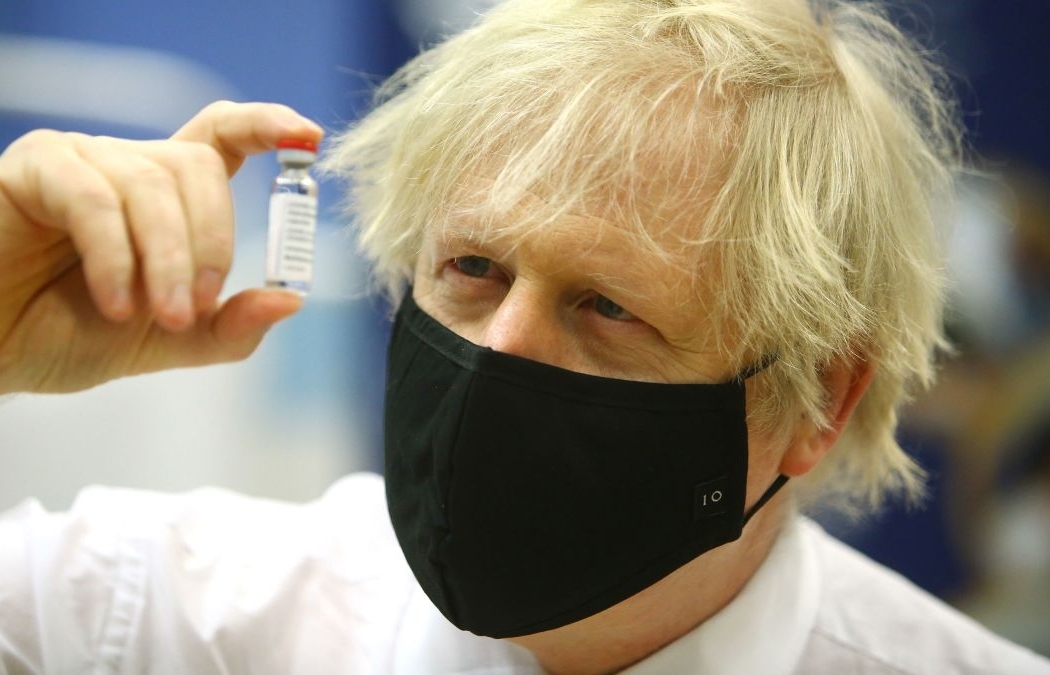 | UK medicine regulator: Covid-19 vaccine AstraZeneca is "both safe and effective" Several European countries have suspended the use of the Covid-19 vaccine AstraZeneca following a number of blood clotting cases indecated. However, the UK regulator investigates ... |
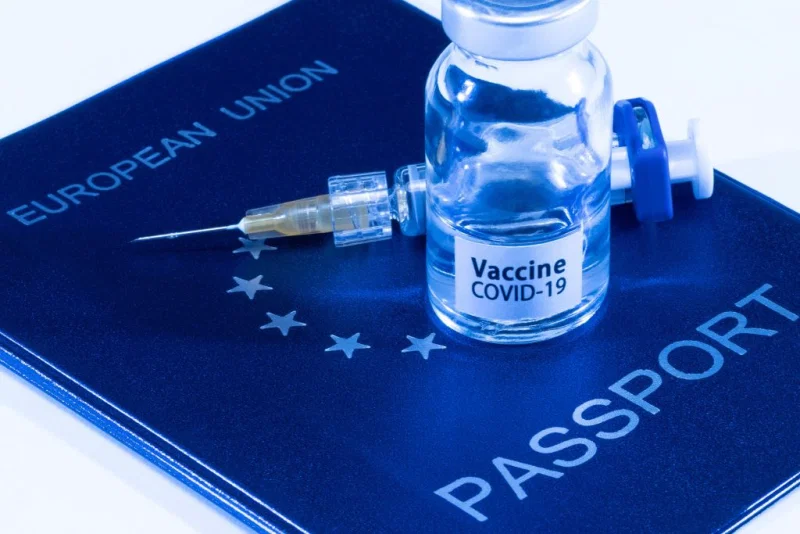 | China rolls out 'world first' Covid vaccine passports for cross-border travel China has launched Covid-19 vaccination certificate, among other countries's first in the world that issue "vaccine passports" in order to re-open their economies and make ... |
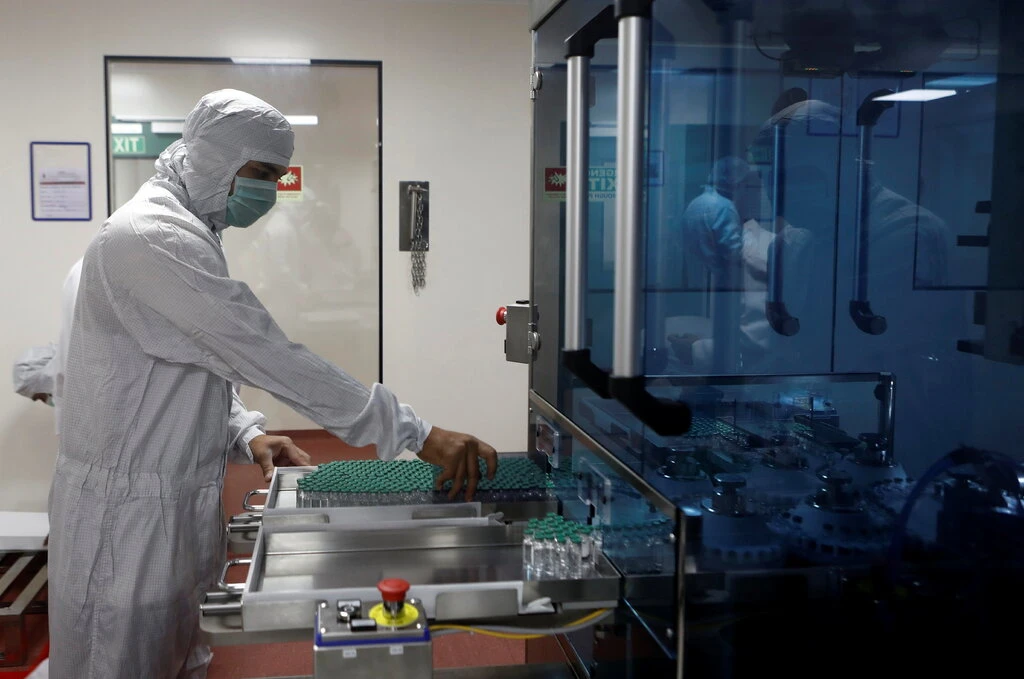 | India to seek funds in "Quad" alliance, countering China's vaccine diplomacy India has sought "Quad" alliance's investment in its vaccine production capacity, including United States, Japan and Australia, as these countries are trying to tackle China's ... |
Recommended
 World
World
Pakistan NCRC report explores emerging child rights issues
 World
World
"India has right to defend herself against terror," says German Foreign Minister, endorses Op Sindoor
 World
World
‘We stand with India’: Japan, UAE back New Delhi over its global outreach against terror
 World
World
'Action Was Entirely Justifiable': Former US NSA John Bolton Backs India's Right After Pahalgam Attack
 World
World
US, China Conclude Trade Talks with Positive Outcome
 World
World
Nifty, Sensex jumped more than 2% in opening as India-Pakistan tensions ease
 World
World
Easing of US-China Tariffs: Markets React Positively, Experts Remain Cautious
 World
World


